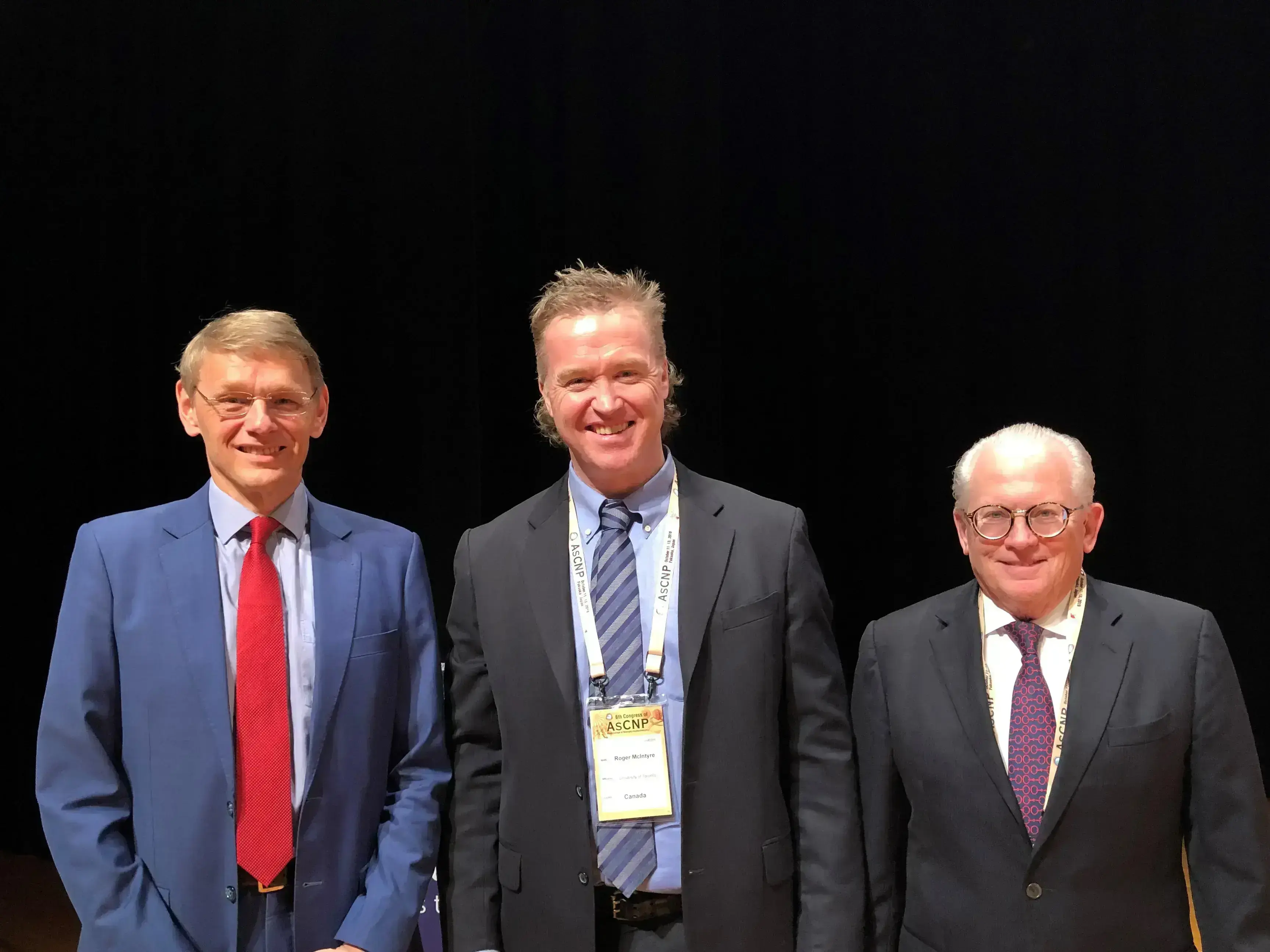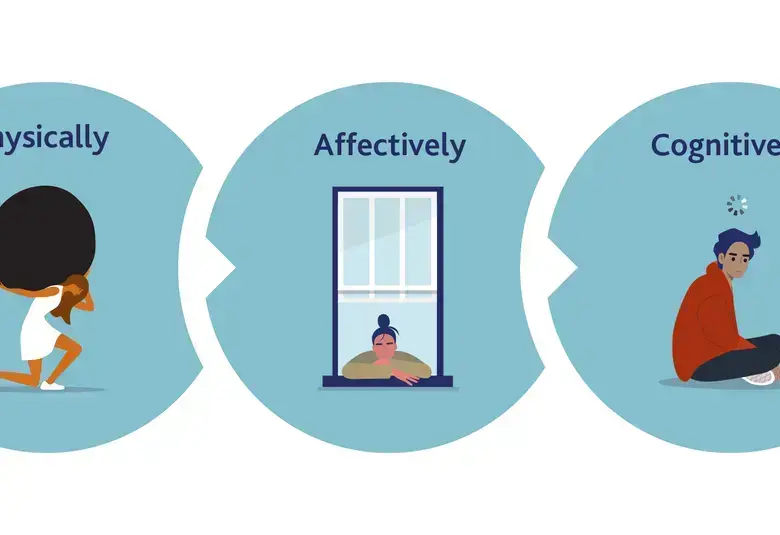Depression is a common and serious illness with heterogeneous symptoms within emotional, physical and cognitive domains. Although a wide range of approved drugs for treating major depression are available, a considerable proportion of patients who meet formal criteria for remission do not consider themselves in remission, or do not obtain functional recovery. In this symposium, three experts gave their view on limitations in our current approach to treatment selection and treatment goals, and offered future directions for optimizing the treatment of depression.
우울증은 정서, 신체 및 인지 영역에 걸친 이질적인(heterogeneous) 증상들을 동반하는 흔하면서도 심각한 질환입니다. 주요우울장애 치료에 승인된 다양한 약물들이 사용 가능하지만, 공식적인 기준에 따라 관해 단계로 분류되는 환자의 상당 비율은 본인이 관해 단계에 해당한다고 생각하지 않거나 기능회복까지 달성하지는 못합니다. 이번 심포지엄에서 전문가 3인은 치료법 선정 및 목표 설정에 대한 기존 접근법의 한계에 대해 의견을 공유하고, 우울증 치료 최적화를 위한 방침들을 제시했습니다.
Looking beyond the ‘average’ patient: A neuroscientific approach to targeting individual patient profiles
‘보편적’ 환자 이외까지 고려: 환자 개개인을 대상으로 하는 신경과학적 접근법
Stephen Stahl, Professor at the University of California San Diego, USA, opened the symposium explaining that clinical guidelines for the treatment of depression are based on meta-analyses typically concluding that different antidepressants are equally efficacious.1 Meta-analyses, however, Prof Stahl noted, reflect what works for the ‘average’ patient; yet many patients’ symptom profiles do not represent the ‘average’ patient. Highlighting the heterogeneity of symptoms in depression, spanning from loss of interest and fatigue to concentration problems and impaired psychomotor function, he pointed out that different pharmacological agents with different specific targets may impact on different clinical measures across the range of symptom domains. Therefore, Prof Stahl noted, we should consider the specific mechanisms of an agent relative to the symptom profile to be able to select the right treatment for the individual patient as early as possible.
심포지엄의 첫 발표에 나선 미국 캘리포니아대학교 샌디에이고의 스티븐 스탈(Stephen Stahl) 교수는 우울증 치료의 기존 임상 가이드라인들은 일반적으로 서로 다른 항우울제들이 동등하게 효과적이라고 결론 짓는 메타분석들에 기반한다고 설명했습니다.1 그런데 메타 분석이 주로 ‘보편적’ 환자에 대한 약물의 작용을 반영하고 있으나, 다수 환자의 증상은 ‘보편적’ 환자의 증상에 해당하지 않는다고 스탈 교수는 지적했습니다. 스탈 교수는 흥미 상실 및 피로부터 집중력 저하 및 정신 운동 기능 장애에 이르는 우울증 증상의 이질성에 주목하며, 각기 다른 치료 대상을 위한 다양한 약물들은 여러 증상 영역에 걸쳐 각기 다른 임상 치료법에 영향을 미칠 것이라고 설명했습니다. 따라서 각 개별 환자들에게 맞는 치료제를 고르기 위해서는 가능한한 빨리 증상 특성에 관련된 특정 기전의 약물을 선택해야 한다고 스탈 교수는 강조했습니다.
Meta-analyses reflect what works for the ‘average’ patient but many patients’ symptom profiles do not represent the ‘average’ patient.
메타 분석은 주로 ‘보편적’ 환자에게 작용하는 약물을 반영하고 있으나 다수 환자의 증상은 ‘보편적’ 환자의 증상에 해당하지 않습니다.
Highlighting persistent cognitive impairment as a common and debilitating symptom in depression,2 Prof Stahl explained that while monoaminergic agents target mainly brain circuits regulating mood symptoms, multiple neurotransmitter systems are involved in cognition, including cholinergic, dopaminergic, norepinephrinergic, histaminergic, GABAergic, and glutamatergic pathways.3,4 Therefore, Prof Stahl noted, we should consider the specific mechanisms of an agent relative to the symptom profile to be able to select the right treatment for the individual patient as early as possible.
스탈 교수는 지속적인 인지 장애를 흔하면서도 심신을 약화시키는 우울증 증상이라 강조하며,2 모노아민성 약물들은 주로 기분 증상을 조절하는 뇌 회로를 표적으로 하는 반면, 콜린성, 도파민성, 노르에피네프린성, 히스타민성, 가바(GABA)성, 글루타민성 경로들을 포함하는 복수의 신경전달물질 시스템들이 인지기능에 관여한다고 설명했습니다.3,4 따라서 각 개별 환자들에게 맞는 치료제를 고르기 위해서는 가능한한 빨리 증상 특성에 관련된 특정 기전의 약물을 선택해야 한다고 스탈 교수는 강조했습니다.
Closing the gap between patient and clinician perceptions to improve treatment outcomes
치료 결과 개선을 위한 환자와 의사의 관점 차이 최소화
The next speaker, Bernhard Baune, Professor at the University of Münster, Germany, pointed out the apparent paradoxes that more than half of patients who meet criteria for remission as defined by depression scale scores, do not consider themselves in remission,2 and that many patients in symptomatic recovery continue experiencing functional impairment.3 According to Prof Baune, targeting mood symptoms is therefore necessary but not sufficient for recovery, as patients themselves consider essential a broader range of factors, including daily functioning, ability to work, and quality of life.2
다음 발표자인 독일 뮌스터 베스트팔렌 빌헬름대학교 베른하르트 바우네(Bernhard Baune) 교수는 우울증 평가도구 점수에 따라 관해 단계로 분류되는 환자 중 절반이 스스로 관해 단계라고 생각하지 않는 명백한 역설적 상황을 지적하며,2 증상 회복을 보이는 환자 중 다수가 기능 장애를 여전히 겪고 있다고 설명했습니다.3 바우네 교수에 따르면, 기분 증상을 치료 목표로 삼는 것은 필요하지만 그것만으로는 충분치 않은데, 이는 환자들이 일상 기능, 근로 기능, 삶의 질 등 광범위한 요인들을 중요하게 여기기 때문입니다.2
Targeting mood symptoms is necessary but not sufficient for recovery, as patients consider essential a broader range of symptoms and factors, including daily functioning, ability to work, and quality of life.
기분 증상을 치료목표로 삼는 것이 필요하지만 그것만으로는 충분치 않은데, 환자들은 일상 기능, 근로 기능, 삶의 질 등 광범위한 요인을 중요하게 여기기 때문입니다.
Prof Baune supported his point presenting recently published data from a survey study,4 showing that patients in remission reported worse symptoms levels across mood, cognitive, and physical domains, and felt more functionally impaired than perceived by clinicians. Clinicians also tended to focus on alleviating mood symptoms in the acute phase whereas patients experienced a need for improving both mood and functioning across all phases.
바우네 교수는 이 의견을 뒷받침하기 위해 최근의 설문조사 연구에서 수집한 데이터를 제시했습니다.4 이 자료에 따르면, 관해 단계 환자들은 의사들에게 인식되는 것에 비해서 기분, 인지, 신체 영역에 걸쳐 증상 레벨을 더 나쁘게 보고하였고, 기능적 장애를 더 느끼는 것으로 나타났습니다. 또한 의사들은 급성기에 기분 증상 완화에 초점을 맞추지만, 환자들은 모든 단계에 걸쳐 기분과 기능을 모두 개선하길 원합니다.
Pointing out the need for closing this gap between patients’ and clinicians’ perceptions of symptoms and treatment goals to improve treatment outcomes, Prof Baune emphasized the importance of shared decision making, with the remission phase as a particularly critical time window for ensuring continuous improvement and restoring full functional recovery.
바우네 교수는 치료 결과를 개선하기 위해서는 증상 및 치료 목표에 대한 환자와 의사의 관점 차이를 줄일 필요가 있다고 지적하며 공동 의사 결정의 중요성을 강조했으며, 관해 단계가 지속적 개선과 완전한 기능 회복을 결정짓는 특히 중대한 시기라고 말했습니다.
Novel approaches to measuring treatment progression may help promote functional recovery
치료 진행을 측정하는 새로운 접근법이 기능 회복 촉진에 도움이 될 수 있습니다
Roger McIntyre, Professor at the University of Toronto, Canada, elaborated on the importance of involving patients in the identification of treatment goals, pointing out the value of patient-reported outcomes when assessing therapeutic objectives and progress, as they may tap into areas that remain unmet needs in the treatment of depression, such as quality of life and functional improvement, including work functioning.
캐나다 토론토대학교 로저 매킨타이어(Roger McIntyre) 교수는 치료 목표 설정 시 환자 참여의 중요성에 대해 설명하며, 치료 목적 및 진전 수준을 평가할 때 환자가 보고하는 임상결과들의 가치에 주목했습니다. 환자들은 우울증 치료 과정에서 삶의 질, 기능 개선(근로 기능 등) 등 아직 달성하지 못한 니즈에 중점을 두기 때문입니다.
Prof McIntyre highlighted goal attainment scaling (GAS)5 as a unique, patient-centered approach to assessing treatment progress and treatment success. With GAS, treatment goals are agreed upon based on a dialogue between clinician and patient and include not only improvement of mood symptoms, but also functional goals related to daily activities and well-being, thus broadening the focus of treatment from symptomatic remission to functional recovery.6
매킨타이어 교수는 치료 진전과 성공을 평가하는 환자 중심의 독특한 접근법인 목표달성척도(GAS)5를 강조했습니다. 목표달성척도를 이용하면 의사와 환자가 대화를 바탕으로 치료 목표에 대한 합의에 이를 수 있고, 기분 증상 개선뿐만 아니라 일상 활동 및 웰빙과 관련된 기능 개선도 치료 목표에 반영됩니다. 이에 따라 치료의 초점이 증상 관해에서 기능 회복으로 확대됩니다.6
Patient-reported outcomes are valuable when assessing therapeutic objectives and progress, as they typically tap into areas that remain unmet needs in the treatment of depression.
또한 환자들은 우울증 치료 과정에서 아직 충족하지 못한 니즈에 중점을 두기 때문에 치료 목적 및 진전도를 평가할 때는 환자 보고 임상결과가 중요한 기준이 됩니다.
Prof McIntyre concluded the symposium by urging the consideration of all the different components of depression as treatment goals, including cognitive symptoms that have been shown to be particularly important for work functioning,7 to be able to restore daily functioning, enhance quality of life and help patients return to meaningful and productive lives.
매킨타이어 교수는 일상 기능의 회복, 삶의 질 개선, 의미 있고 생산적인 삶으로의 복귀를 위해서는 근로 기능 측면에서 특히 중요한 인지 증상7 등 모든 우울증 요소를 치료 목표로 삼아야 한다고 촉구하며 심포지엄을 마무리했습니다.
Educational financial support for this satellite symposium was provided by H. Lundbeck A/S
본 위성 심포지엄은 H. Lundbeck A/S의 교육 재정 후원으로 진행되었습니다.
본 자료는 Global Lundbeck 의학부에서 선별한 콘텐츠이며, 한국룬드벡의 의견과 다를 수 있습니다.




